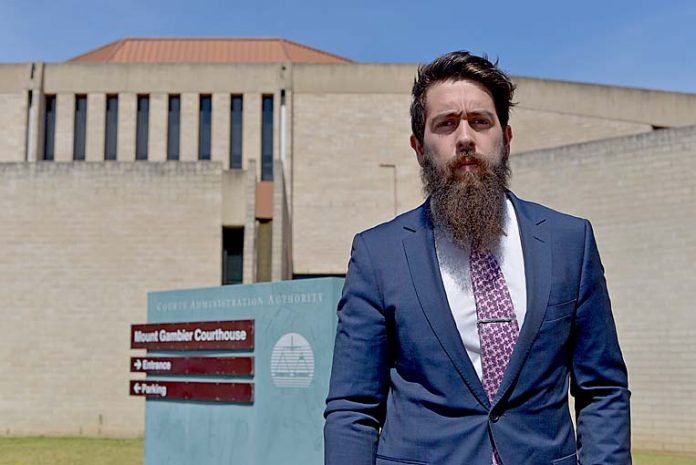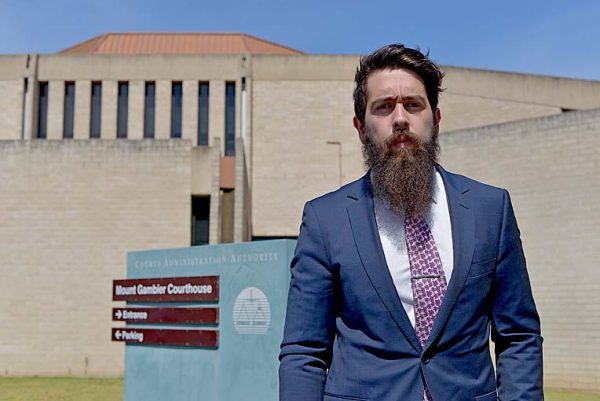

A MOUNT Gambier lawyer has spoken about major delays in court processes with many accused criminals left waiting several months for their cases to reach District Court.
It led to one of the smallest Mount Gambier District Court circuit lists in recent memory being held this week.
Three defendants appeared in the Mount Gambier District Court for the first time on Tuesday to be arraigned, with the hearing adjourned in just under an hour.
In the past, the courtroom has been packed with offenders during arraignment, with the hearing taking most of the day to complete.
South East defence counsel Dylan Walsh said the hearing was a reflection of current problems the court system has faced since reforms were introduced just over a year ago.
“The reforms were introduced to try and speed up the committal process from magistrates court to district court and further to ease the backlog of dated matters that are in the system,” Mr Walsh said.
“Instead there is now a huge backlog in the committal process – I saw in the media a few months ago that only 15 or 16 cases had been committed to the district court statewide since the new reforms had been introduced compared to well over 400 at the same time last year.”
He said the problems start when the major indictable files are first presented to the court after police lay charges.
“There is a new unit called the Major Indictable Briefing Unit (MIBU) which now takes conduct of the file after the first court date instead of local prosecution,” Mr Walsh said.
“They are sometimes asking for around six to seven months before the file will be ready for the Director of Public Prosecutions (DPP) who then require a further four weeks to make a charge determination.”
Mr Walsh said lawyers had been able to use the delays in their favour when making bail applications for offenders who faced serious charges.
This has led to high-risk criminals being released back into the community.
“Constant delays are unfair to our clients and our job is to act in our clients best interests,” he said.
“Having constant delays adds an additional hurdle we need to over come, so we utilise these delays when making bail applications
“Parliament have designed these laws, so that certain people should not be getting bail, but magistrates have to take the delays into account.”
Mr Walsh said another unfair aspect of the delays was the period of time offenders are spending on remand or home detention bail.
“I had a client who was sentenced on Tuesday who spent four months on home detention bail and then had the major indictable charges dropped when they reached the DPP,” Mr Walsh said.
“So he spent four months on the strictest form of bail for charges that did not even proceed.”
He believed the delays were caused by a combination of factors, including understaffing at MIBU and the time taken for forensic assessments to be completed.
Attorney-General Vickie Chapman recently announced that measures have been introduced to ease the backlog of forensic psychiatric assessments in the atate’s courts.
She said the proposed laws would help ensure courts had timely access to information when dealing with high-risk offenders.
“The first priority will always be keeping the community safe, which is why I have been working to find a solution that ensures reports can be delivered to the court in a more timely fashion, while still ensuring the same high level of quality advice is prepared,” Ms Chapman said.
“By allowing registered psychologists to prepare some reports – under the governance of the clinical director – this will free up our forensic psychiatrists to finalise more complex reports in a timelier manner.”
Mr Walsh said he expected the changes to help reduce delays, but believed there needed to be a lot more done to ultimately fix the problem.
“I do not think it’s a blanket fix, it might be band aid for a little while, but I think there needs to be more done for all of these units,” he said.
“The MIBU in particular seem to be understaffed and there seems to be some sort of breakdown between them and the DPP, so whether it’s more funding required, I do not know, but something needs to be done.”







